Climate Change Strategy
The need for prompt action in combating global warming has become more urgent than ever before, as the impacts continue to escalate globally. Indorama Ventures has undertaken initiatives to address the challenges associated with climate change, guided by our commitment to drive progress towards a sustainable future. Adopting The Task Force on Climate-related Financial Disclosures (TCFD) framework increases transparency of our climate reporting, enhances risk management practices in our operations, and strengthens stakeholder engagement. We established an Internal Carbon Pricing framework for our business divisions, assigning a monetary value to carbon emissions. This strategic measure helps align business decisions and investment strategies with our overarching sustainability ambitions and serves as a proactive measure to mitigate transitional risks. We have continuously utilized material efficiency from the circularity of our products, which helps reduce GHG emission intensity across the entire value chain.
In alignment with the United Nations Sustainable Development Goals (SDGs), particularly Climate Action (SDG #13) and Responsible Production and Consumption (SDG#12), we are committed to collaborating with external stakeholders to expand our climate sustainability initiatives. Through these partnerships, we uphold environmental commitments by engaging with suppliers and providing ESG training programs on sustainable supply chains, climate change, and Scope 3 emissions, and seek to deliver solutions toward climate change mitigation and adaptation that effectively address the challenges posed by climate-related risks.
Climate-related performance has cascaded to businesses, functions and individuals. Performance is assessed as part of a globally consistent performance management process. The climate-related incentive program covers following levels:
At Indorama Ventures, we recognize these risks and are committed to taking action. In addition to our Climate Strategy 2025, we developed a Climate Strategy Corporate Standard that guides our global operations in terms of best practices for the climate, including GHG management, with key actions and KPIs in four segments.
The senior leadership which includes IMC ( Indorama Ventures managements Council) , GCEO, Deputy Group CEO, Executive President of Business segments, Chairman of ESG Council, CTOs, and others have objectives and KPIs to drive and achieve IVL vision 2030 and sustainability targets.
- Group Chief Executive Officer (GCEO)
- Group Chief Technical Officers
- Decarbonization Committee
- Plant Heads
- Deputy Group Chief Executive Officer (CEO)
- Manufacturing Excellence Council (MEC)
- Regional Chief Technical Officers (RCTO)
- Head of Environmental Sustainability
- EHS Managers
| Pillars | Strategies | Outputs |
|---|---|---|
|
Process/Product Efficiency |
|
|
|
Natural Resources |
|
|
|
Climate Change Resilience |
|
|
|
Circular Economy |
|
|
*Base year 2020
We are fully committed to finding pathways towards developing effective low-carbon strategies to alleviate the activities that cause climate change. We see the circular economy as an important instrument in combatting climate change and an opportunity to strengthen our recycling business globally. Through innovation, we aim to create products that can be used at their maximum value for as long as possible. We have proactively established our targets as indicated in our Climate Strategy 2025 focusing on four key areas.
Task Force on Climate-related Financial Disclosure (TCFD)
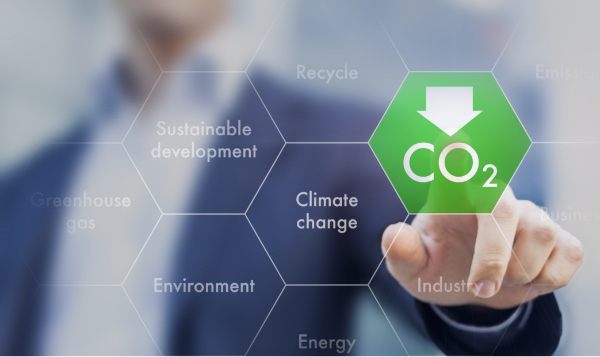
Implementing the TCFD’s Recommendations
IVL has embraced the recommendations of the Task Force on Climate-related Financial Disclosures (TCFD) for its financial and non-financial evaluations. We have also considered the IEA’s STEPS and SDS scenarios for financial analysis by using the internal carbon price as a parameter to quantify monetary impacts if a carbon tax is imposed in OECD and non-OECD countries, and conducted stress-testing analysis to anticipate the impacts on production, EBITDA, and revenue as part of our risk management process.
Indorama Ventures has implemented an internal carbon price (ICP) of USD 20 per tCO2e across all projects with expected environmental benefits (green projects). This policy, implemented alongside a relaxation in the payback period threshold for green projects, was taken to facilitate deeper decarbonization within the company allowing for the implementation of more decarbonization projects.
The company participates in multiple emissions trading schemes (ETS) worldwide, notably the EU ETS. Please refer to our TCFD report for additional details on our ETS and carbon tax payment forecasts.
In addition, as suggested by the TCFD, we applied the AQUEDUCT water risk atlas to forecast changes in future water stress to identify sites that face the most significant risk in future water demand and supply. The results of these studies have been incorporated in our long-term adaptation measures, which allows management to make informed and long-range decisions for IVL’s sustainability.
At Indorama Ventures, we utilize two methodologies, the Life Cycle Assessment (LCA) and Portfolio Sustainability Assessment (PSA) to evaluate the ESG impact of our products. These methods enable us to achieve sustainable competitiveness by ensuring our products meet customer requirements while leaving a positive impacts. Both approaches are valuable tools for assessing sustainability and together, they provide a more comprehensive understanding of the sustainability impact of our products. The CPET and Fibers businesses combined represented 55.9% of production volume, reflecting completed and ongoing LCA studies in 2024. The Indovinya segment completed LCA studies for products accounting for 78% of revenue in 2024. The ongoing LCA helps us evaluate the environmental impacts of our products in compliance with ISO 14040/44:2006. We conducted an assessment in order to understand the sensitivity of the price of carbon on our business, and are taking further taking steps to study and implement a policy to embed the internal cost of carbon in our operations including M&A decisions.

As part of our Vision 2030 strategy, Indorama Ventures continues to prioritize technology, cross-sector collaboration, and bold leadership to accelerate the shift toward a climate-resilient, resource-efficient, and nature-positive economy.
Anthony Watanabe, Chief Sustainability Officer, attended the “Climate and Nature Leadership in the Intelligent Age” session hosted by the World Economic Forum (WEF) in Tokyo on February 18–19. The event convened industry leaders and innovators to explore how AI and digital intelligence can drive large-scale climate action, nature conservation, and circularity. In his closing remarks to fellow CSOs, Anthony emphasized the value of collaboration and highlighted how WEF initiatives have shaped our sustainability journey.

At the 28th United Nations Climate Change Conference (COP28), held from November 30 to December 12, 2023, at Expo City in Dubai, Indorama Ventures showcased its innovative sustainability solutions and decarbonization strategy, emphasizing its pioneering investments in developing sustainable solutions to mitigate PET’s environmental impacts while driving the global circular economy. Mr. Yash Lohia, Chairman of the ESG Council, emphasized Indorama Ventures’ commitment to environmental responsibility, pledging to intensify the use of renewable energy, produce low-carbon products, and optimize resource efficiency

In September 2023, Indorama Ventures’ Chief Sustainability Officer, Mr. Anthony M. Watanabe, participated in a series of leadership meetings during UN Climate Week in New York, hosted by the World Economic Forum. These discussions covered a wide range of climate issues, ranging from a global plastics treaty, to promoting circular trade and green foreign direct investment, in addition to building the business case for climate adaptation. The World Economic Forum organizes a Community of Chief Sustainability Leaders, which brings together over 100 Chief Sustainability Officers from top global companies across 24 industries and 28 countries to gain insights and remain updated on the latest nature and climate trends and their impacts on business.
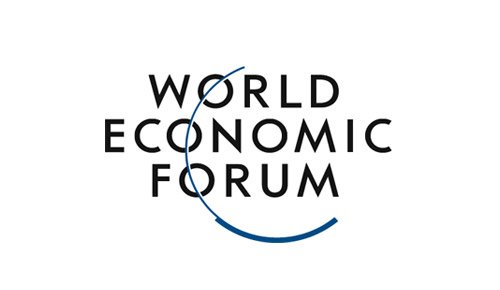
Despite the overwhelming scientific consensus and widespread recognition of the threat, the actions required are substantial and require actions from the individual, organizational, national and transnational levels. Therefore, dealing with climate change should be a serious priority and should not be ignored.
We are implementing the 8 principles in the World Economic Forum Climate Governance Initiative. It serves as tools to help elevate the strategic climate debate and drive holistic decision-making that includes careful consideration of the links between climate change and business
IVL’s 8 principles in the World Economic Forum Climate Governance Initiative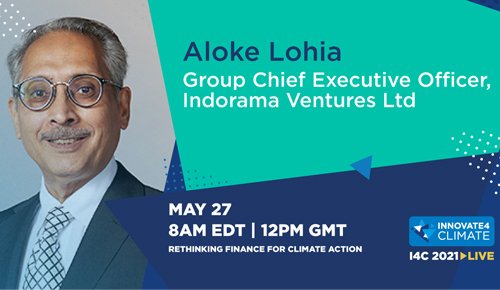
IVL was honored to be a part of Innovate4Climate (I4C), an annual global conference on climate finance, investments, and markets hosted by the World Bank Group that attracts leaders focused on transforming dialogue into action on climate change by linking climate innovations with investment opportunities. The three-day event, hosted by the World Bank Group and the governments of Spain and Germany, combined high-level plenaries, workshops, and a virtual marketplace to exchange knowledge and demonstrate know-how in delivering low-carbon resilient solutions.

To support our corporate long-term GHG emissions targets and to improve both our environmental and economic operations, we have undertaken several concurrent GHG intiatives. Expanding and improving recycling are important ways to help address climate change.
2025 Global Commitment:
The PET resin produced by IVL is 100% recyclable. In 2019, we made a global commitment to the Ellen MacArthur Foundation. We invest USD 1.5 billion to recycle 50 billion bottles per year or 750,000 Tons of post-consumer PET materials as feedstock into our polyester production per year
Manufacturing goods from recycled materials typically requires less energy than producing goods from virgin materials. Our most recent collaboration with Unilever and Ioniqa to recycle colored PET bottles into virgin PET is an innovative and important example of our continuous efforts. Further details of this initiative are provided in the Innovation Management section of this report, while more details on our recycling operations are given in other chapters.
We have been acknowledged through important achievements in addition to being recognized by external organizations such as S&P Global CSA and CDP. Looking ahead, we remain committed to achieving our targets and will continuously raise the bar to create a sustainable strategy that leads to greater value for our stakeholders, bringing us closer to achieving our vision of making great products for society.
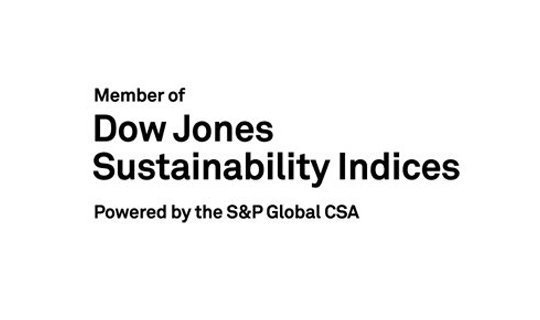
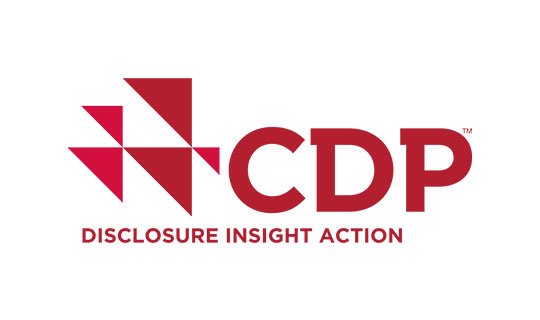
To make further progress towards environmental stewardship, Indorama Venture Public Company Limited (IVL) recently received assessment from CDP – the global environmental disclosure system – helping measure the risks and opportunities on climate change. The company has received a CDP score of B which is a Management band. This is higher than the Asia regional average of B- , and higher than the Global average of B-. The CDP Score Report will guide us towards our goal of better climate governance while boosting the transition to clean energy.